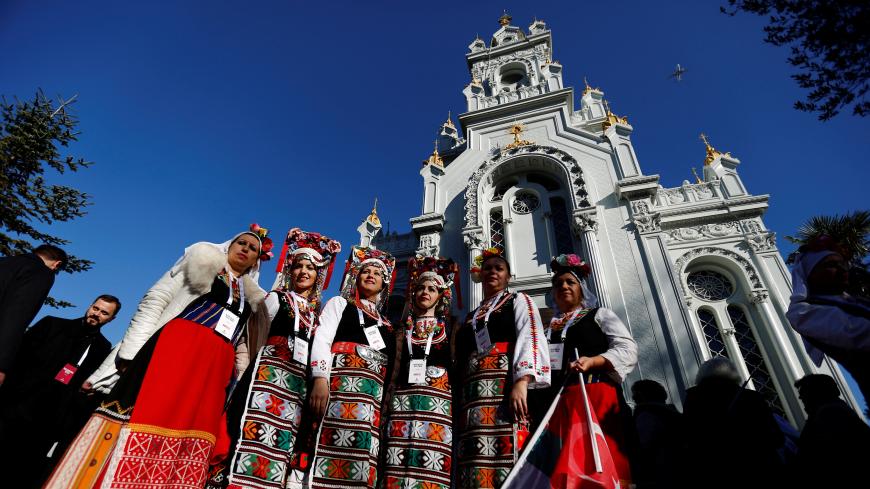According to popular history, Istanbul’s Sveti Stefan Church, one of the few remaining cast iron churches in the world, owes its existence to a whim of Abdulhamid II. At the end of the 19th century, the enigmatic Ottoman sultan was dead set on keeping his crumbling empire together and deeply suspicious of any organized movement among minority groups. As the story goes, he allowed the Bulgarian Orthodox community to rebuild their burned church — but gave them just a month to finish the construction. A shrewd Armenian architect, Hovsep Aznavur, came up with the idea of bringing in prefabricated pieces of cast iron from Vienna, minimizing the construction time and meeting the sultan's challenge.
Like most good stories, this one is no more than myth. Nevertheless, it stimulates historical and touristic interest in the Iron Church, which reopened earlier this month after seven and a half years of renovation. The timing coincided with Bulgaria’s taking over the European Union’s rotating presidency, a gesture both to Bulgaria and the EU.



